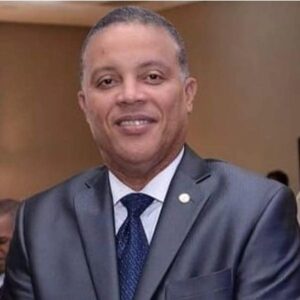The arguments that deny the climate crisis and that promote disinformation on this problem have changed in recent years, going from an “old denial”, which posed the non-existence of global warming, to a narrative which maintains that climate solutions will not be effective or that the impacts of the phenomenon will be harmless.
The proposal was made by the former president of Costa Rica, Laura Chinchillakeynote speaker at the opening ceremony of the diploma “Communicating Climate Change: Narratives for the Future”, developed by the Sur Futuro Foundation and the Pontifical Catholic University Madre y Maestra (Pucmm).
“Given the evidence that has been produced about warming and climate changeare denialist narratives have been moving towards denying the benefits of strategies that are being promoted,” he indicated.
In the opinion of the former Costa Rican president, the disinformation constitutes a challenge as complex as the “desolate panorama in matters of climate change and preservation of our planetary heritage.
“The detractors of environmental sciences and some supporters of the fossil fuels have done a good job of raising doubts about the climate change and launch campaigns disinformation at a global level,” said Chinchilla, adding that this dynamic has gone hand in hand with the influence of social networks and the “malicious use” of them.
“Numerous analyzes highlight that in some countries denialism or skepticism regarding climate change can impact a third of the population”Former President of Costa Rica
He recalled that in 2022 the Intergovernmental Group of Experts on Climate Change (IPCC) recognized that the disinformation and the rhetoric on this issue, in addition to the undermining of science, “have contributed to generating erroneous perceptions of the scientific consensus and uncertainty among large sectors of the population.”
Counter disinformation
Costa Rican policy emphasized the need for governments collect and disseminate objective information about the phenomenon, in an alliance with the media communicationthe business community and civil society, to face the disinformation.
Costa Rica and the sustainable development
During her presentation, the former governor highlighted the need to establish new parameters to measure human development, based on notions of sustainability and natural capital.
“It is about trying to make high levels of human development compatible and at the same time reducing polluting emissions and the ecological footprint we leave. It is no longer enough to worry about progress in human development,” he said.
Laura Chinchilla He said that history has confirmed that the protection of the environment and biodiversity constitutes the best investments to achieve sustainable human development of countries, contrary to a historical perception that sacrifices economic growth for the environmental protection.
The example of Costa Rica
The political scientist cited the case of the nation she governed in 2010: “Costa Rica was the first tropical country that was able to reverse the process of deforestationin the late 80s we had one of the highest rates of deforestation of the region, with just over 20% forest cover.
“Four decades later, we became one of the greenest countries in the world, with more than 60% forest cover. Thanks to this, we have managed to produce 100% of the energy we consume from renewable sources and we lead the global industry in the sustainable tourism and we have a greater capacity for resilience compared to other countries in the region,” he indicated.
The Administrative Minister of the Presidency, Andrés Bautista García, participated in the event, expressing the importance of joining efforts from all sectors to guarantee the proper issuance and reception of the information requested by the interested parties.
“Today more than ever, we are called to work together, parents, teachers, government, academies, churches, civil society and health professionals. communicationto ensure that our citizens receive clear information“said the Baptist minister.
About him diploma
When referring to diplomathe president of the Sur Futuro Foundation, Melba Segura de Grullón, stated: “With this new training program, we reaffirm our commitment to strengthening the capabilities of community leadersteachers, youth networks and grassroots organizations in the fight against climate change“he concluded.
The rector of the PucmmReverend Secilio Espinal, stressed that “through modules that explore the ethical responsibility in the climate coveragethe international context of climate changeand specific cases of the region, this program aims to train the communicators so that they become effective narrators of the climate crisis“.
According to the organizers, this course, sponsored by Banreservas, will also provide theoretical and practical tools to the communicators to understand and communicate about climate change effectively, promoting an ethical and responsible commitment in the news coverage related to this crisis.
Participants will obtain a certificate of participation accredited by the Center for Technology and Permanent Education (TEP) of the Pucmm.


